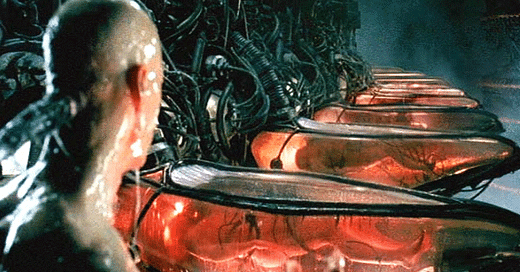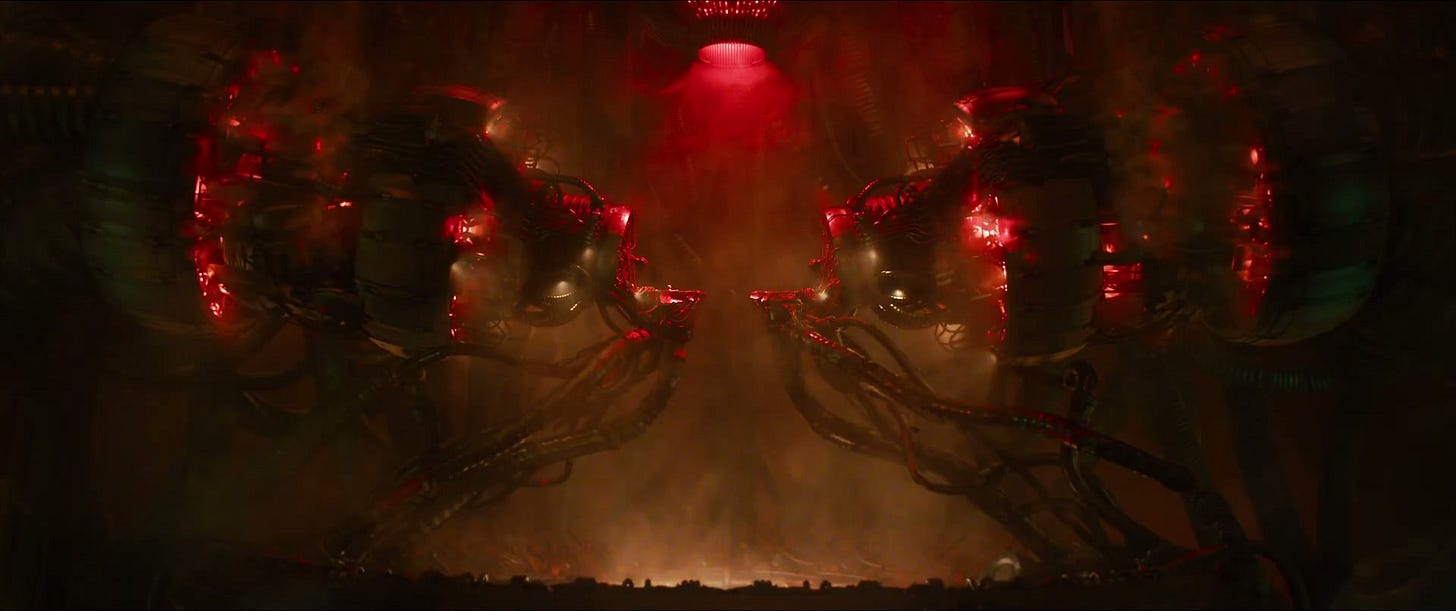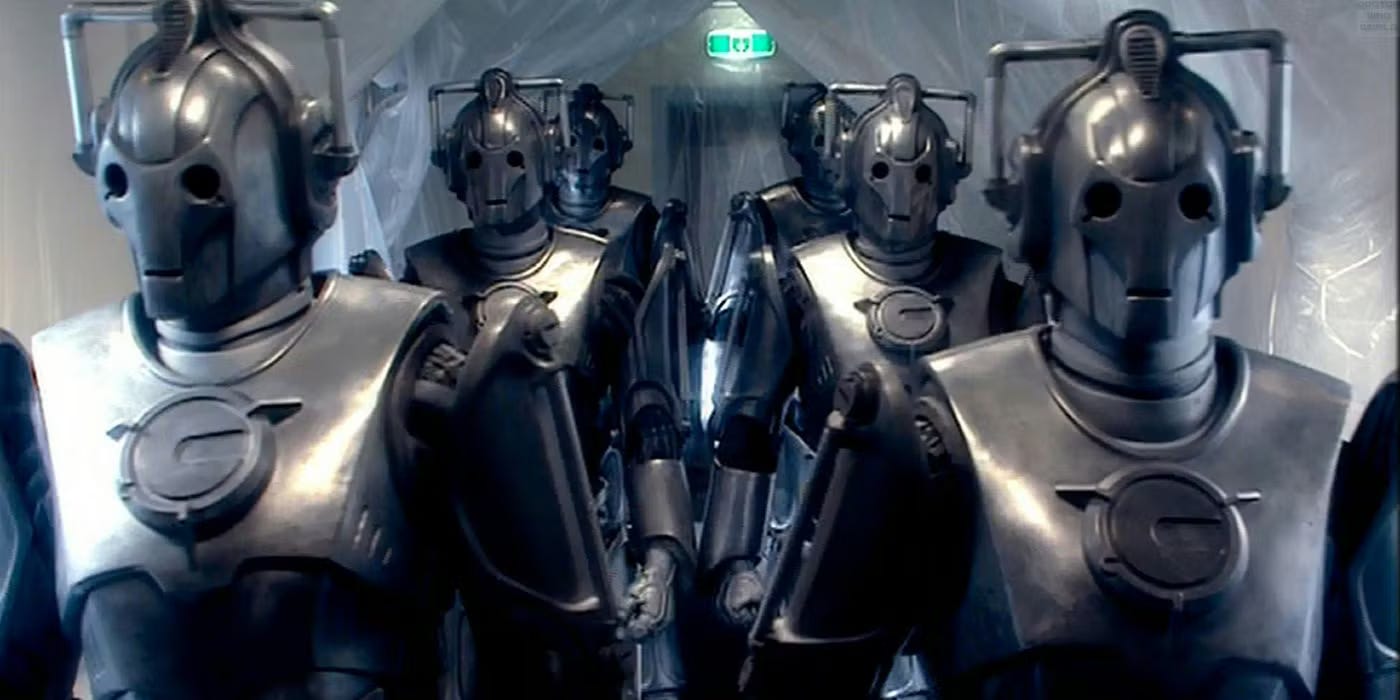I have today started to realise that society tries to push men and women into different variants of the scapegoat role, and if they do not fulfil this role, they become the overt scapegoat "problem", to be fixed and redeemed, so they can continue being good old silent scapegoats for society. To be endlessly sacrificed, and deny their true self, so they suffer for the system, that harvests their vitality like a machine.
Society often creates roles that maintain a certain status quo by encouraging individuals to fit into predefined molds, which reinforces group dynamics and power structures. People who resist or refuse to play these roles are labeled as “problems” to be “fixed,” so they can be reintegrated as useful members of the system, albeit in a diminished, self-sacrificial way. There are other variants of the same scapegoat role that society manipulates or distorts. Here are a few key examples:
1. The Savior/Protector Role
Society often pushes people (especially men) into the role of the savior or protector. This role suggests that they must constantly provide for others, carry the emotional or material burdens of their loved ones, and sacrifice their own well-being for the sake of others. Sacrificing their emotions, desires, and autonomy to uphold this image.
The trap here is that when people embrace the savior role, which is part of the scapegoat-redeemer complex, they risk neglecting their own needs, suppressing their vulnerability, and ultimately burning out. This leads to frustration, disillusionment, or self-destructive behavior when the role is unfulfilled or unrealistic. In this sense, it becomes another form of the scapegoat dynamic, and when the protector cannot save, they are blamed for failing to live up to the societal ideal, becoming the problem.
2. The Perfectionist/Overachiever Role
This role pushes people to constantly strive for perfection in all aspects of life, whether it be in career, appearance, or relationships. The need for external validation and the pressure to always be "better" leads many people, to feel like they are never enough unless they are constantly improving or excelling. Society creates this ideal to maintain control over individuals by setting standards that are impossible to meet, which keeps people striving and feeling inadequate, making them easier to manipulate and exploit.
When people fail to meet these impossible standards, they are often viewed as failures or "problematic". This is especially evident in the way social media exacerbates unrealistic expectations, where the quest for perfection becomes a societal norm that demands continuous self-sacrifice for external approval.
3. The Caregiver/Nurturer Role
This is a role often imposed upon women, but it also affects men in different ways, especially in queer or gender nonconforming communities. People in the caregiver role are expected to constantly give without expecting to receive in return, whether it's emotional support, physical care, or social labor. Society positions those in caregiving roles as the ones responsible for holding others together emotionally, financially, or mentally. The danger here is that caregiving in modern society often turns into a means to control others while leaving the caregiver drained and unsupported.
The caregiver is often manipulated into the role of "selfless" service, and if they push back or refuse to serve, they are seen as selfish or even villainized, which then triggers the scapegoating mechanism. The caregiver may eventually feel unappreciated and invisible, reinforcing the cycle of neglect.
4. The Rebel/Outlaw Role
Society also creates a counter-role for those who reject mainstream norms, the rebel or outlaw. This role is often seen as one of defiance, resistance, or nonconformity. While it can be empowering, it’s also manipulated to maintain societal control, as these people become the “other,” the outcast or the misfit, who challenges the system’s stability.
The problem with this role is that rebels can often be demonized, marginalized, or isolated as "problems" to be “fixed.” Society simultaneously admires and demonizes rebellion, which keeps people in a perpetual state of being outside the mainstream, never allowed to fully integrate, and thus always a "scapegoat" in the larger system.
5. The Victim Role
The victim role is particularly insidious, as it often gets assigned to those who have been oppressed, marginalized, or hurt. Society encourages them to identify with victimhood, thus reinforcing the power dynamics that sustain systems of inequality. In this context, people in the victim role are made to be dependent on the system, as their survival is tied to the acknowledgment of their pain and trauma.
If people in the victim role do not accept their perpetual victimhood, they may be labeled as "problematic" or "ungrateful." The victim is then blamed for their suffering, which reinforces the narrative of powerlessness and allows others to remain in control. This role is a trap because it becomes both an identity and also a source of societal leverage that prevents people from escaping their oppression or growing beyond their trauma.
6. The "Normal" Citizen Role
In some ways, the most insidious role society pushes is the “normal” citizen, the person who blends in, follows the rules, and doesn’t rock the boat. This role enforces conformity and discourages critical thinking or questioning of the status quo. People who adhere too strictly to the role of “normal” are often complicit in societal injustices, yet they are rarely seen as part of the problem.
It's those who are self-sacrificing, the ones who conform or quietly endure without ever truly being themselves, who are actually the ones trapped in the scapegoat role. Society demands that they fit into these molds, be the perfect caregiver, protector, achiever, or whatever role they've been assigned, and as they conform, they devalue themselves, pushing aside their own needs, desires, dignity and authenticity in favor of meeting the demands of others. In truth, it's not the ones who reject the role who are the problem, but those who continue to self-sacrifice themselves, unknowingly reinforcing the cycle of scapegoating and denial of self.
7. The "Wisdom" or "Guru" Role
On the more spiritual or philosophical side, society has a tendency to create figures of authority that are seen as the "wise" ones or "gurus." These figures are often projected onto people who have knowledge, wisdom, or spiritual insight, creating a pedestal where they are expected to offer solutions for others' problems, or be a redeemer. However, the problem with this role is that it places undue pressure on individuals to remain perfect or infallible, which can be isolating and psychologically burdensome.
When these "wise" figures falter or reveal their own vulnerabilities, they are often quickly turned into scapegoats for any failures within the system they represent. The paradox is that society demands wisdom but also punishes those who show the inherent human flaws that come with true wisdom.
The Silent Scapegoat and the System of Fake Redemption
When then people in these silent scapegoat roles inevitably break down due to the immense pressure, it’s seen as their personal failure. Their suffering and breakdown, their emotional pain, are pathologized as problems that need to be fixed. Society, along with its systems of therapy and psychology, often focuses on "redeeming" these people. Which means, getting them back into their assigned roles, into their places of self-sacrifice, denial, and conformity, so they can resume being part of the system that perpetuates their suffering.
This “redemption” is a form of re-subjugation. The underlying belief is that the individual is somehow wrong or broken for not fitting into the expected roles of the world. But the problem is not the individual; the problem is the system that forces them into these roles and strips them of their humanity, dignity and true expression. When someone breaks down from the weight of this societal demand, they are blamed for being weak, for not being able to "handle it," or for “misbehaving.” The focus then shifts to "fixing" them, often through therapy, medication, or other forms of interventions. So they can re-enter the machine, to play the role they are supposed to play and “contribute” to the greater societal structure once again.
In the process of this supposed "redemption," the real issue is obscured. Instead of challenging the structures that are harming the person, the system shifts the focus to the individual’s supposed inadequacies or pathologies. Psychology or therapy, in this case, can become an instrument of re-socialization, teaching people to adjust their thoughts, behaviors, and emotions to fit back into roles that demand their self-sacrifice, their silence, or their conformity. It becomes a means of suppressing or denying their true selves once again.
When the person is "redeemed" in this way, they’re essentially being asked to suppress their authentic expression, their discomfort with the roles they’ve been forced into, and to go back to being a silent scapegoat. They are told that their pain, their breakdowns, are the result of personal issues they must overcome, rather than being a natural response to a society that forces them into these impossible roles. It’s a cycle of re-traumatization, where their breakdowns become the justification for their continued suffering in silence.
In psychology, the notion of pathology often goes beyond simply repressing emotional reality, it constructs and perpetuates a narrative that disempowers the individual, positioning them as the problem to be fixed, rather than as a person whose suffering is rooted in the wider societal structures that impose unhealthy expectations. In this view, individuals are led to internalize their pain as personal pathology, framing it as something wrong with them, rather than recognizing it as a response to a world that demands compliance and self-sacrifice. This narrative transforms people into victims. Victims not of circumstances, but of their own supposed inadequacies or imbalances.
The Role of Pathology
When people are placed into this pathologized frame, they are subtly pushed into a role where they carry the weight of society’s collective suffering. They are expected to absorb the toxic, harmful emotions and pressures that are generated by a society that values conformity over authenticity, self-sacrifice over individual well-being. In a sense, they are made into "ghost mommies". Invisible figures who are expected to bear and hold the suffering of others, whether that be through silent endurance, emotional labor, or the repression of their own emotional truth. Their pain, rather than being seen as a legitimate response to a broken system, is normalized as a burden they must carry, without question, without recognition.
This process subtly transforms them into the scapegoats of society, the ones who are cast as "problems" to be "fixed." Therapy, in this context, often becomes less about healing and more about endurance. Instead of helping individuals reclaim their voice, their authenticity, and their agency, it becomes a mechanism for getting them to endure their suffering without questioning the source of it. Making the person the source of their failure and suffering, or simply blaming it onto early childhood. Not recognising that it is the dismemberment of the inner child due to the social order, and the displacement of trauma from one generation onto the other, which creates this never ending cycle of scapegoating and suffering in the first place.
Therapy that follows this pattern doesn’t seek to empower the individual to break free from their role as the scapegoat. It seeks to make them more resilient, more able to endure their role. The deeper emotional reality, the truth of their experiences, is minimized or ignored in favor of an approach that makes them conform to societal expectations, however damaging or oppressive those may be. This type of therapy erases the person, and hides it behind an un-emotional robotic facade.
The individual’s emotional reality is repressed in the sense that their pain is not seen as a sign of something that needs to be transformed or understood. Instead, it is framed as something they must manage, bear, and "heal" within the constraints of their assigned role. They are told to accept the notion that their suffering is simply part of their own internal pathology, which they must overcome in order to function properly within the system. That there is somehow something wrong with them, and that they are the problem. The emotional weight of the collective suffering of society is projected onto them, and they are made to carry it silently, without the chance to question why they have been forced into this burden in the first place.
This dynamic turns therapy into a tool for re-socializing the individual back into their position as a scapegoat, rather than liberating them from it. Instead of questioning why they are in pain, individuals are taught to question what is wrong with them. Instead of being encouraged to look at the systems, beliefs, and structures that contribute to their suffering, therapy teaches them to "fix" themselves so they can continue enduring. They are made to believe that the problem lies within them, not in the world around them. And as they are "redeemed," they are pushed back into the roles they are meant to play, roles that demand they sacrifice themselves for the sake of others, roles that ensure the system remains intact.
The suffering they experience is a natural and legitimate response to an oppressive society, one that uses individuals as scapegoats to maintain its own stability. True therapy would empower people to break free from these roles, to recognize their intrinsic value beyond the roles society imposes, and to heal not just individually, but collectively. It would help them see that their pain is not a personal defect but a reflection of a deeper societal issue that needs to be addressed.
It shows that society isn't just dealing with isolated cases of suffering; it's an entire system that perpetuates suffering through these roles, keeping people in a state of unacknowledged oppression.









